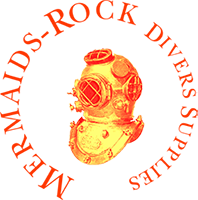Are You Considering A Career In Commercial Diving?
Diving is a high hazard activity and there are specific regulations on diving at work to control the risks. These are The Diving at Work Regulations 1997 (DWR).
The regulations
The DWR cover all dives when one or more divers are AT WORK in the diving industry whether employed or self-employed. The regulations apply to everyone from the client for whom the work is being done, to the diver undertaking the work. All persons involved have a responsibility to take measures to ensure the health and safety of those taking part in the diving project as well as their own.
Divers have a number of responsibilities under DWR. These include:
Holding an approved qualification for diving;
Being competent to work safely; and
Holding a valid certificate of medical fitness to dive.
Approved qualifications
Under the DWR, the Health and Safety Executive (HSE) approves diving qualifications it considers suitable for ensuring the adequate competence of divers.
Divers must hold an appropriate qualification for the class of diving required in a diving project. A list of HSE approved diving qualifications is available.
What is diving at work?
Diving is the means of getting to and from a worksite and carrying out tasks. These tasks may be part of a wide range of industry from civil engineering to archaeology. Potential working divers should ideally already possess the technical skills that are relevant to the job. For example, construction workers may require welding qualifications, while divers involved in an archaeology project may require a degree in archaeology. You need to have both the diving skills and work skills that employers want.
Career options
There are different types of working divers, each demanding different skills and competencies. These include:
Offshore Diving in support of the offshore oil and gas industries. Usually it is contract based.
Inland / Inshore Diving, for example, in support of civil engineering or marine-related projects and fish farming.
Scientific and Archaeological Diving in support of scientific research and education, and archaeological investigation of sites of historic interest.
Media Diving in support of film or TV productions which require divers to work as stunt performers, journalists, presenters, photographers, camera operators, sound and lighting technicians, and unit crews.
Recreational Diving involving the instruction and guiding of recreational divers.
Police and Armed Forces. These divers are specialists who are chosen from personnel already in the service.
How to become qualified as a working diver in Great Britain
In order to become a working diver in Gt Britain you must obtain a qualification approved by HSE that is relevant to and sufficient for the work to be undertaken.
Unless you already hold one of the approved qualifications, you will need to have your diving competence (if any) assessed by an organisation recognised by HSE. This may include training. Please check the following webpage for a list of diver competence assessment organisations - For costs of training courses please contact the organisations direct.
Diving is physically and mentally demanding. Some potential divers drop out of the training because they find they are not suited to working underwater. Good health is absolutely essential. At the earliest possible stage you should complete an initial medical questionnaire to see if there is anything in your medical history that might preclude you from a career in diving. Please see section below “Are you medically fit?”
Commercial diving competencies
HSE has four assessment standards of commercial diving competence: SCUBA Diving, Surface Supplied Diving, Surface Supplied Top Up Diving and Closed Bell Diving.
SCUBA stands for Self Contained Underwater Breathing Apparatus where the air supply is in cylinders worn by the diver.
Surface supplied divers receive their air supply via an umbilical (hose) from the surface.
In order to dive offshore on surface supplied equipment, divers must also undertake a Surface Supplied Diving (Top Up) assessment.
Closed bell divers use mixed gas in order to dive deeper than 50 metres. They can spend up to 28 days working (and living) in a compression chamber complex transferring to the work site in a diving bell.
To be eligible for a Closed Bell Diving qualification a diver must have experience diving using surface supplied diving equipment and techniques. Please contact the organisations to discuss the course pre-requisites.
If a person fails to reach the required competence a diver assessment organisation will refuse to award the qualification. If this happens the person can appeal within 28 days for a review of the decision using the assessment organisation’s appeals procedure.
Are you medically fit?
Professional diving is a very demanding career. It requires a high degree of physical and psychological fitness that means you will need to be very fit initially and will need to keep yourself in top condition.
If you decide to proceed to become a working diver, you will need to complete the medical questionnaire contained in the diver fact sheet above and have it countersigned by your GP. Your GP may charge you for this. The Diving at Work Regulations 1997 (DWR) require you to pass a thorough medical examination by an Approved Medical Examiner of Divers (AMED), before starting training. AMEDs are approved by HSE and are trained in diving medicine. The AMED will look at your medical questionnaire to assess whether there is anything in your medical history that might exclude you from a career in diving.
The following medical conditions may prevent you from diving or restrict the type of diving you can do (the list is not exhaustive):
Mental health problems, including depression, panic attacks and claustrophobia
Lung disease or chest problems, including chronic obstructive pulmonary disease, asthma and collapsed lung
Disease of the heart or circulation, including high blood pressure, angina, heart attack, chest pains and palpitations
Disease of the brain or nervous system, including epilepsy, stroke and multiple sclerosis
Blackouts or recurrent fainting
Severe motion sickness
Severe migraine
Ear, nose throat or sinus problems
Diabetes
Persistent stomach or intestinal problems
Certain skin problems
Certain blood disorders
In addition, a diver who is pregnant or suspects she may be pregnant should not dive.
Medical examination
Before beginning training and or assessment you must pass an initial medical examination carried out by an AMED to ensure you are medically fit to dive. The AMED also needs to make you aware of any underlying health problems, which could affect your fitness in the future. If you pass the medical you will be issued with a certificate of medical fitness to dive, which is valid for up to 12 months. This must be renewed annually and will include a fitness test.
The cost of the examination may vary depending on any further tests an AMED may have to carry out particularly if you have any of the conditions listed above. The AMED may state restrictions about the types of diving work you can do, for example, the depth to which you can dive. Any person who fails a medical or who is given a restricted certificate has the right to appeal to HSE for a review of the decision. In such circumstances, you will need to apply in writing to HSE within 28 days of the decision.
Further details of the medical appeals procedure
Details of AMEDS
Effects of diving on health
The hazards of a diving career include a number of specific acute and chronic medical conditions, such as decompression illness (‘the bends’) and bone necrosis , and some that are being investigated as possibly being associated with diving. Compliance with accepted diving procedures reduces these to a small risk. However these may occur even if you do comply.
Notes to general practitioner
Diving at work within UK waters is subject to The Diving at Work Regulations 1997 (DWR) which require divers to undertake annual medicals. Before beginning training, all diving trainees must be examined by a Health and Safety Executive (HSE) Approved Medical Examiner of Divers (AMED). If passed fit, the AMED will issue a certificate of medical fitness to dive. GPs may wish to read the HSE guidance The medical examination and assessment of divers (MA1). Should your patient decide to proceed to become a working diver, they should complete the medical questionnaire in the diver fact sheet above and have it countersigned by you.
LATEST ARTICLES
- “El Buzo,” or “The Diver,”... Statue... Mexico.
- Dive Into History
- Depth Of The Deepest Dive With Breathing Apparatus
- A BRIEF HISTORY OF DIVING: FREE DIVERS, BELLS AND HELMETS
- Saturation Diving Technique
- 20,000 lies under the sea ... The fishy world of Jacques Cousteau
- Royal de Luxe ... The Giant Diver Mechanical Marionette
- Europe's first underwater museum opens off Lanzarote
- Cousteau legacy still making a splash
- In Memoriam | Bob Kirby: 1933-2022
- The COMEX Story
- 10 Things No One Tells You Before You Become A Deep Sea Diver
- Diving Suits through History
- Training And Qualifications in Commercial Diving
- Australia’s deepest ever commercial dive leads to brain injuries, mental scarring


